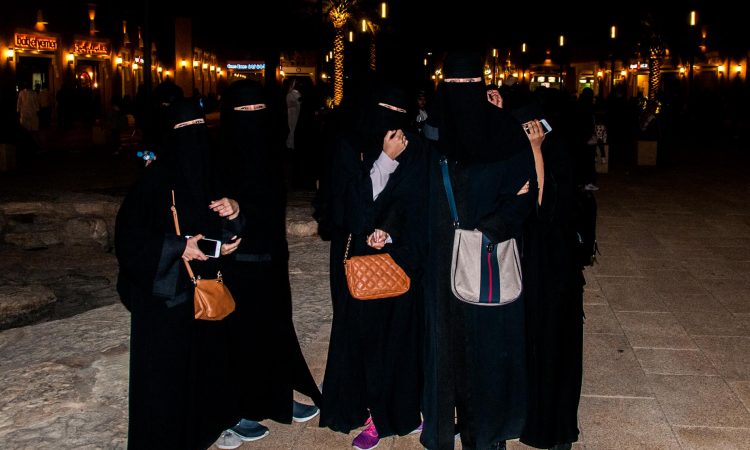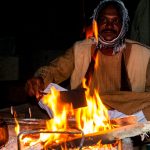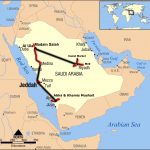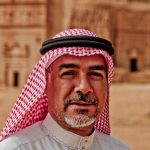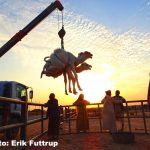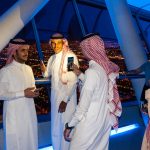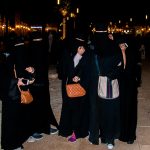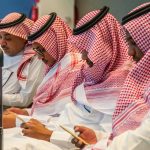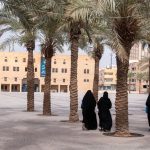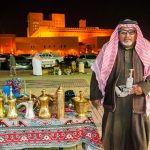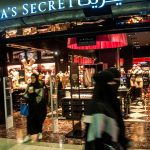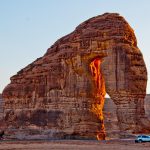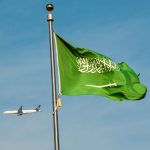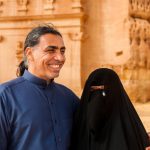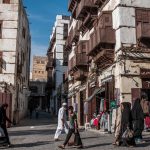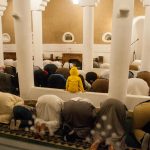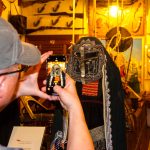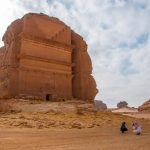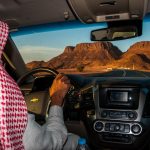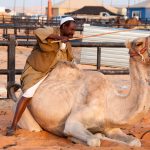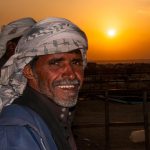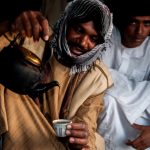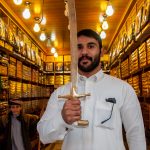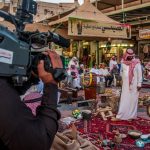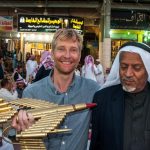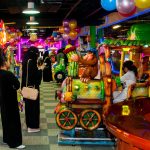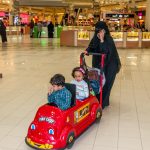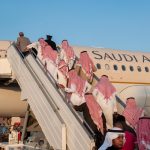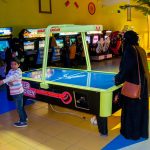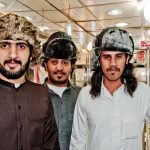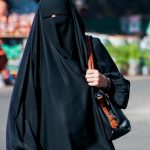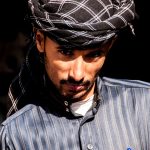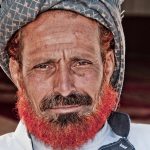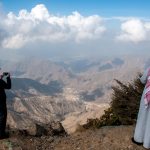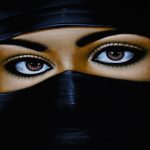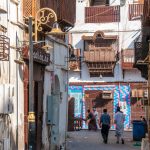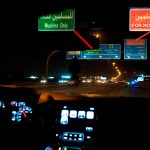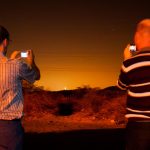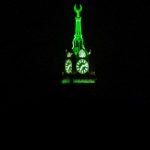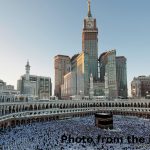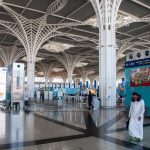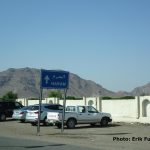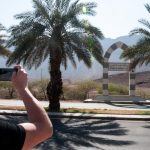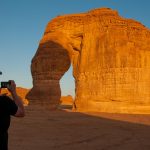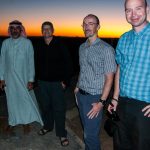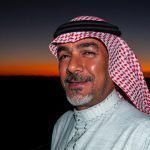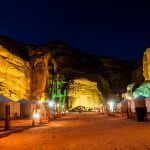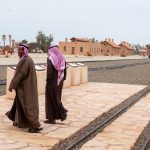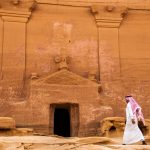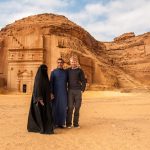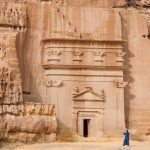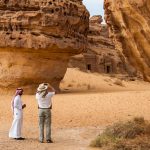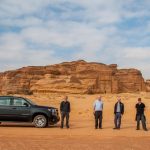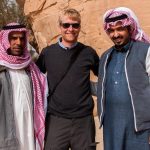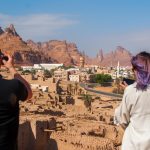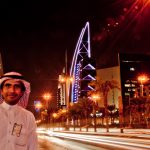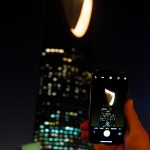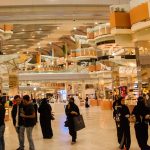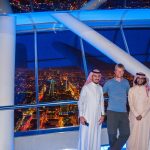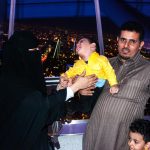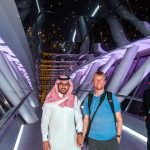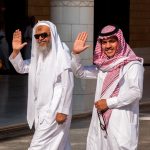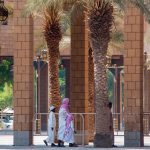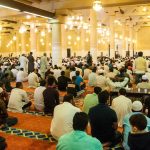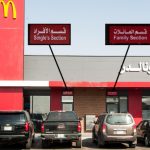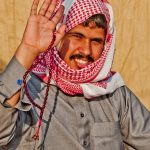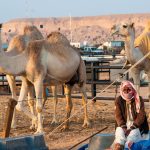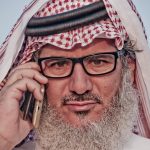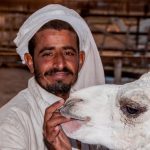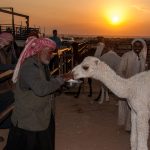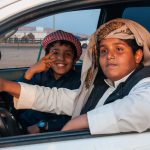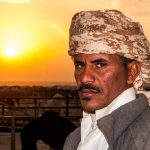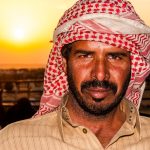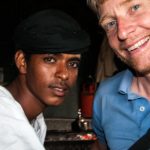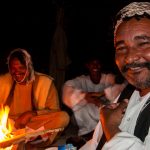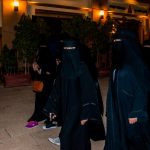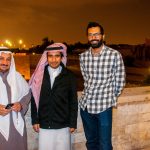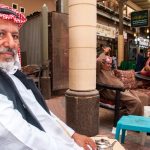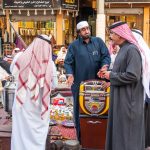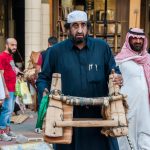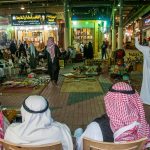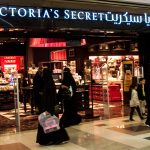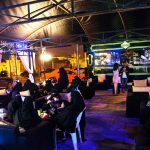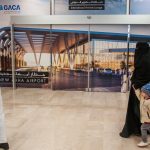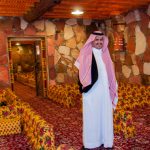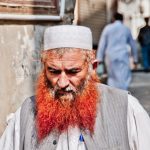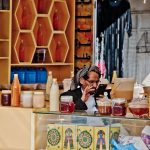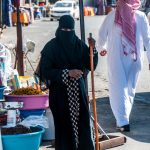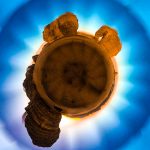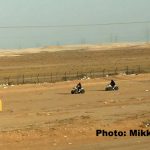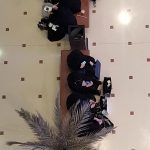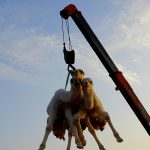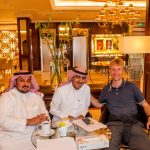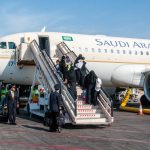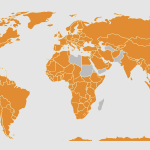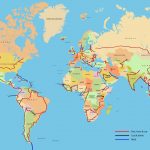Is it possible to listen to Abba in Abha and drink mocca in Mecca? Can we hear ‘Medina’ (danish artist) in Medina and bring ‘Ulla’ to Al-Ula? Tag along when our Danish 4-man private group goes to Saudi where we meet Abu Sultan and visit the Deera ‘Public Punishment’ Square in Riyadh.
First a few interesting facts about Saudi Arabia (2017 research):
• Harry Potter is banned in Saudi (for fear of witchcraft)
• There are no cinemas
• Alcohol and prostitution are forbidden all over the country
• Birth control is forbidden
• Death penalty can be used against drug smugglers, blasphemy and people using witchcraft.
• Immigrants (primarily from Pakistan, Bangladesh, India and the Philippines) make up more than 30% of the total Saudi population. About eighty percent of the Saudi Arabian labor force is non-national.[
• Only in Saudi must shops and most public offices close during the 5 daily prayers (up to 30 minutes each).
• Saudi is the 13th largest country in the world.
• No tourist visas have been issued since 2009. (Note this changed in 2020 – now eVisa is possible)
• “Sidewalk skiing” is a popular sport (driving on two wheels) in Saudi. Saudi has one of the highest rates of road fatalities in the world.
• Women are not allowed to drive in Saudi until June 2018.
• 1 liter of petrol costs 20 US Cents
• Property prices near Mecca are currently the highest in the world.
• The clock tower in Mecca was finished in 2012. It is 601 meters tall and the 5th tallest building in the world. It was built as part of the “Towers of the House” seven skyscraper project. To date it is the most expensive building complex ever built.
• Most Saudi women are wearing the Niqab – leaving only their eyes visible. Many add a see-through veil to their Niqab to also cover their eyes. A few Saudi women are instead wearing an Abaya (robe) and a Hijab. Foreigners are not required to cover their hair. Saudi women not properly covered are known to be arrested.
• Until 2012 only men were allowed to sell lingerie.
• Taxes in Saudi are 0%. (it is considered to introduce tax on cigarettes)
• Public punishment is still carried out in Deera Square in Riyadh. Swords are used. Popcorn can be purchased in small shops next to the square.
”Umrah” it says on the sign over our immigration line. After a night of flying we are tired and somewhat confused. Getting our visas has not been an easy task. Nervously we are approaching the immigration officer ahead of us.
“Umrah” – we find out – is almost the same as “Hajj”. The only difference being that “Hajj” – pilgrimage to Mecca and one of the five pillars of Islam that any Muslim who has the financial means and the physical ability must complete at least once – must be made on specific dates whereas “Umrah” can be performed any time of year.
After having shifted to the correct – non-religious – line we await our turn. Behind every immigration booth is an Arab officer with the traditional white robe called a “thobe” (or dishdash) – a “ghutra” a cotton headcloth usually checkered red and white held in place by a black ring called an “Igal”. Over each booth hangs an expensive Canon SLR-camera instead of the cheap webcams you see everywhere else.
“Yāqub, but that’s the name of prophet!” Says the guy in my desk simply and scribbles some Arabic characters in my passport next to my Saudi visa before stamping me in. I smile at him and say that Jakob is the name of a prophet also in my religion. After 7 years of struggle getting my Saudi visa I am finally allowed entry to this closed kingdom.
Our guide Khalid picks us up in the airport. He looks like an Arab version of George Clooney and behaves in the same confident manner. A visit to the Jeddah Kingdom Tower not too far from the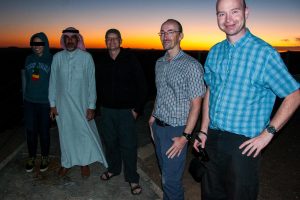 airport is not on the itinerary but after a moderate amount of pressure we manage to persuade Khalid to take us there. The tower now stands at around 150 meters. At completion – estimated around 2020 – it will be the world’s tallest building with a planned total height of more than 1 kilometer.
airport is not on the itinerary but after a moderate amount of pressure we manage to persuade Khalid to take us there. The tower now stands at around 150 meters. At completion – estimated around 2020 – it will be the world’s tallest building with a planned total height of more than 1 kilometer.
Our private Danish group consists of three engineers and a doctor. I am the only one from Copenhagen the other three are from Jutland. We are all members of “Travellers Club of Denmark”.
After having seen the Unesco listed Old Town of Jeddah with its decrepit buildings and sagging  balconies we start to make plans for our trip around the country. Our aim is to listen to Abba in Abha. Drink mocca in Mecca. Listen to Medina (Danish artist with the Danish hit single “welcome to Medina”) in Medina and finally bring a woman named ‘Ulla’ to Al-Ula.
balconies we start to make plans for our trip around the country. Our aim is to listen to Abba in Abha. Drink mocca in Mecca. Listen to Medina (Danish artist with the Danish hit single “welcome to Medina”) in Medina and finally bring a woman named ‘Ulla’ to Al-Ula.
Abha is located in southern Saudi Arabia near the border with Yemen. Not many travellers have visited the region as it has only recently opened. I haven’t visited Yemen and it’s tempting to try and go the 50 kilometers to the border. But war is raging in Yemen and I do not have the required visa or a double entry visa to get me back to Saudi. So instead we just listen to Abba in Abha.
In the Abha region we get the enchanting Abdulrahman as our driver. He is from India and it would be an overstatement to say that he is familiar with either mountain driving, windscreen wipers or big 9-seater American cars. Khalid says that Abdulrahman is a “trainee” which we assume means that he has just arrived on the immigration plane from New Delhi. As long as there are no road bumps his city driving is reasonable. On the mountain roads, on the other hand, after each turn we consistently end in the wrong lane. Navigating also does not belong among Abdulrahman’s core strengths. Fortunately, with the help of Khalid and our GPS, he finds the Tuesday market (on a Monday) and reaches the viewpoint for a mountain village built directly on a cliff.
“I’ve heard that 9/11 hijackers came from Abha,” I say to Khalid at a time when the road is relatively straight.
“There are so many conspiracy theories”, answers Khalid, “I think they came from Iran. You know it’s just like the Kennedy murder. People still don’t know who did that “. He is as smooth as a parrot fish in Jeddah’s central fish market and he looks like someone who believes in what he says.
“Women in Saudi are already allowed to drive a car” Khalid surprisingly also states. “They just can’t get a driving license. So, if they are stopped by the police they will only get a small fine for not having a license”. He also says that he has never tasted alcohol. I am not sure I believe everything Khalid tells us. At least in our 8 days in the country we see no women driving.
In the evening, we eat at a local restaurant with Khalid and Abdulrahman. Mainly we use our hands. We get rice and naan bread with delicious magelgel (lamb in tomato sauce) and magash (potato, okra and lamb in green sauce) and grilled juicy chicken. Unlike the dessert, it tastes great. The dessert “Mashroosa” consists of flour, yogurt, butterfat and honey – stirred together to form the worlds possibly fattiest desert. We are expected to eat it by repeatedly using the same spoon we have already had in our mouths. “This is the closest ones comes to making out with an arab man” Mikkel says before taking his next bite.
The next morning Abdulrahman arrives half an hour late. We have only factored an hour in at the airport to catch our domestic flight. Now Abdulrahman is a dutiful person who has probably set off in proper time. However, since he is not familiar with the operation of wind screen wipers and he has not been able to see through his dirty windscreen he has had to drive really slowly to our hotel.
Back in Jeddah, we persuade the good Khalid to drive us the 90 kilometers to Mecca. Large highway signs near the Mecca city border announce that non-Muslims must take the exit along the 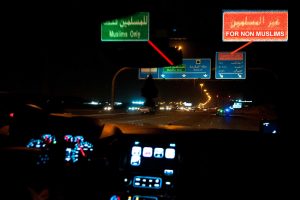 city’s ring road. We are turning off and thus will never know what would have had happened if we had continued straight on towards the control booths. The official punishment for smuggling yourself to this holy place is nothing short of deportation from Saudi Arabia (and possible death penalty if one has terrorist purposes). Unofficially WikiTravel informs that you risk that civilians will beat you to death if they find you within the city limits. So we opt for just the ring road. From between 5 and 10 kilometers away, we photograph the 600-meter-high clock tower.
city’s ring road. We are turning off and thus will never know what would have had happened if we had continued straight on towards the control booths. The official punishment for smuggling yourself to this holy place is nothing short of deportation from Saudi Arabia (and possible death penalty if one has terrorist purposes). Unofficially WikiTravel informs that you risk that civilians will beat you to death if they find you within the city limits. So we opt for just the ring road. From between 5 and 10 kilometers away, we photograph the 600-meter-high clock tower.
Khalid does not seem to think it is the world’s greatest idea that we are making our ‘Mocca in 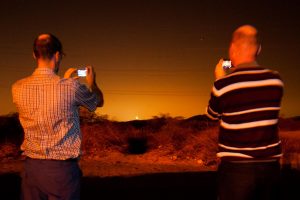 Mecca’ video (sipping cold coffee from a plastic bottle) near the holiest of Muslim cities – so we try to record it as discreetly as possible from our very remote location on the ring road.
Mecca’ video (sipping cold coffee from a plastic bottle) near the holiest of Muslim cities – so we try to record it as discreetly as possible from our very remote location on the ring road.
When flying from Jeddah to Medina we are suddenly accompanied by Khalid’s “best friends daughter”. She is “around 30 years old” and wearing sand colored abaya and hijab and hides her pretty face behind huge sunglasses. Upon arrival, we record our Medina in Medina video under the “Welcome to Medina” sign. By now we have heard Abba in Abha, drunk Mocca in Mecca and listened to Medina in Medina. But we cannot believe that we are now actually also going to bring ‘Ulla’ (whose real name is not ‘Ulla’ though – but since she is not following religious protocol we will keep it at that) to Al-Ula.
Being accompanied by a woman the coming days means that we must use the “family entrances” to the restaurants we visit instead of the “single men entrances” we are used to. Within the restaurants of course ‘Ulla’ is covered but as soon as we hit the dessert road through northern part of the country ‘Ulla’ takes of her Arab clothes. Underneath she has tight western jeans a western t-shirt and a rebel Rastafari purse. I think she reasons that when in this group strangers will assume her to be just another tourist and give her the chance for a short while to enjoy the freedom of wearing western clothes.
With our new female partner in crime we see the tombs of Mada’in Saleh. Like Petra in Jordan they  were built in the 1st century under the Nabatean Kingdom and – also like Petra – they look like something out of Indiana Jones.
were built in the 1st century under the Nabatean Kingdom and – also like Petra – they look like something out of Indiana Jones.
Khalid has told us he is going to travel with us to Riyadh. “But how will ‘Ulla’ get home to Jeddah – when Saudi women are not allowed to travel alone?” we ask him. “There are no rules about that. It’s just Western propaganda”, Khalid says. But shortly before we fly back to Riyadh, Khalid is – very conveniently for him and ‘Ulla’ – “suddenly called back to Jeddah”.
In Riyadh we get a new guide. A super guy named Tariq. Straight off the plane he takes us up the “Kingdom Centre” that looks like a giant bottle opener and has a cool sky walk on it’s top. Without 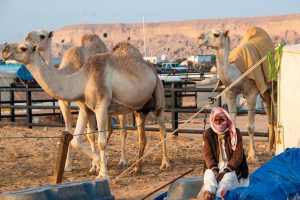 blinking he – and his cool driver Saud (named like the Saudi king the country is named after) – later take us to the camel market almost a hundred kilometers outside of Riyadh even though it is not a part of our tour. After that we go to the historic Diriyah district where we to our great surprise meet our friend Abu Sultan.
blinking he – and his cool driver Saud (named like the Saudi king the country is named after) – later take us to the camel market almost a hundred kilometers outside of Riyadh even though it is not a part of our tour. After that we go to the historic Diriyah district where we to our great surprise meet our friend Abu Sultan.
Abu Sultan we met five days earlier in Abha. We have been told he is a ’Sheikh’. Allegedly he has worked as the ‘office manager’ for one of the Saudi princes. He does not speak a word of English but through his English-speaking lawyer friend Abdullah I was able to communicate with him when we met and I found out that he was living in Riaydh. “Call me when you are there”, he told me, “then we will arrange a visit”.
Tariq rang him. And now he is here. Behind our backs Tariq has set up this surprise visit. “You are smooth,” I tell Tariq. “I have to be – I live among beduins,” he answers. Abdullah has told me that 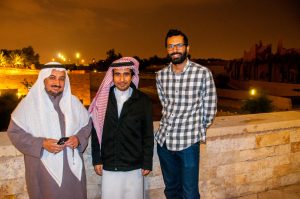 Abu Sultan has three wives living in each their house and we would have liked to visit him in one of those. Instead he takes us out to a fancy restaurant in the historic quarter. He treats us with camel meat and a fantastic meal with dishes too numerous to count. After the meal he insists on giving us presents. We all get prayer beads and I get a silver ring matching the one Mr. Sultan wears himself.
Abu Sultan has three wives living in each their house and we would have liked to visit him in one of those. Instead he takes us out to a fancy restaurant in the historic quarter. He treats us with camel meat and a fantastic meal with dishes too numerous to count. After the meal he insists on giving us presents. We all get prayer beads and I get a silver ring matching the one Mr. Sultan wears himself.
We spend our two last mornings on Deera Square in Riyadh. Every “ten to fifteenth day” this is where public executions still take place (usually within 24 hours of sentencing). Chopping is done 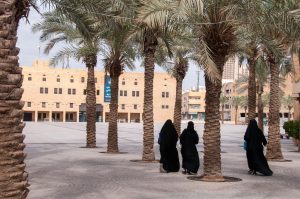 with swords and locally the square is known as “chop chop square”. “It is mainly heads and not so many hands”, Majid who is from Pakistan and work in one of the many nearby shops tells me. “Mainly drug smugglers and sometimes murderers if they cannot afford the blood money”, he tells me, “about 15 days ago they decapitated a Saudi man who had killed his wife”.
with swords and locally the square is known as “chop chop square”. “It is mainly heads and not so many hands”, Majid who is from Pakistan and work in one of the many nearby shops tells me. “Mainly drug smugglers and sometimes murderers if they cannot afford the blood money”, he tells me, “about 15 days ago they decapitated a Saudi man who had killed his wife”.
The square itself is dotted with sprayed blood. “They put out plastic but sometimes the head flies quite some distance. It is pretty messy”, Majid says, “afterwards an ambulance takes the corpse to the hospital where they sew the head back on”.
I tell him that I have seen a photo on the internet of four men being hanged. “That happens extremely rarely,” he answers, “I think it must be six to seven years since they last hanged someone,”. He looks at me with melancholic eyes: “Some immigrant workers from Bangladesh had raped a local woman. Then they drove a crane into the square and strung them all up under a beam for everyone to see what they had done. ”
We are in Riyadh over a weekend (Friday and Saturday in Saudi Arabia) where no public punishment take place. We meet a guy from Bangladesh who is responsible for the light in the square and in the nearby mosque. He tells us that there are almost no executions on weekends “because Riaydh’s governor wants to attend them and he cannot do that when he’s not working”. So we only observe the blood stains at this macabre square. And drink coffee and eat cheeseburgers (without cheese) on a bench in the sun not far from where executioners still in 2017 chop heads of people with swords. I gaze upon the empty square and remember the last words of Majid: “People can think what they want. At least I think it will abstain many from committing crime. ”
That’s it – sorry for the long post – thanks for staying – enjoy the photos. Sorry for the digital noise on a few pictures (because of the laptop-in-hand-luggage-ban that Britain has on inbound Saudi flights I thought big SLR-cameras also had to be checked in so I only brought my old Nikon). Don’t forget to check out the funny guy at the end of the last video in the album.
THANX to Abu Sultan for great hospitality. To my travel companions. To Felix Mechnig-Giordano for pointing us to the very interesting Antiques Auction in the Souq in Riyadh. And to everyone who has helped – or tried to help – in securing my visa – especially one person who wishes to remain anonymous.

